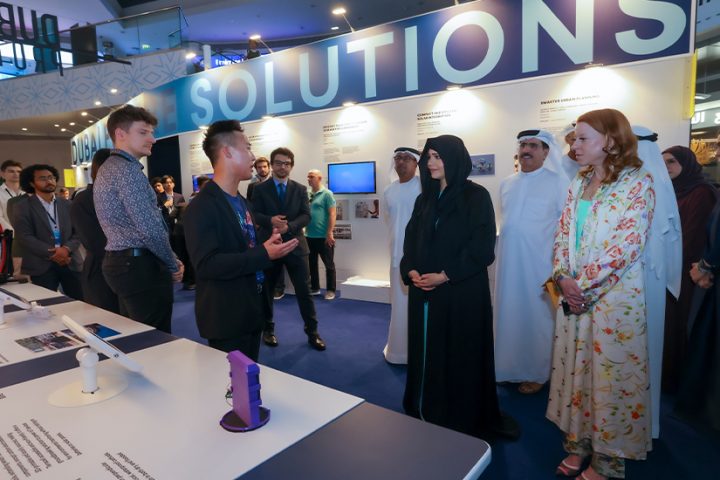The application-driven economy is most certainly here. Applications are where most people now consume digital experiences and services, and the best vehicle for satisfying customer demands and employee needs at speed. It is why businesses around the world are defining their objectives based on their ability to develop and deliver new applications quickly.
An agile approach to application development means businesses can continuously reinvent the way they connect and communicate with their customers and meet evolving expectations, whether internal or external. It is a big reason why it is not only one of the top IT priorities, but also wider business priorities, too.
VMware’s Market Insights Report indicates 91% businesses’ primary application initiative is to migrate and modernise legacy applications
VMware’s Market Insights Report, for example, indicates that 91% businesses’ primary application initiative is to migrate and modernise legacy applications. The drive is so strong that by 2024, we expect half of all applications to be modernised.
Although most businesses are aware of the application opportunity, many do not have the required in-house knowledge and skills around application modernisation and delivering multi-cloud strategies to meet their business needs. This is why partners have an enormous opportunity; both to help enterprises navigate the transition from legacy to cloud-native applications, and from cloud to multi-cloud infrastructure.
Those that succeed in both will position themselves as leaders in the application-driven world, while engineering their businesses around valuable and growing revenue streams.
The drive is so strong that by 2024, we expect half of all applications to be modernised
Partners have an opportunity to position themselves as the secret sauce; the bridge that unlocks business’ ability to get applications into production securely and at speed and removes the persistent barriers to innovation.
Their expertise is needed, as application development at an enterprise scale is becoming increasingly fragmented within today’s businesses. DevOps teams are becoming distributed across organisations, and in many cases operating without any communication with central infrastructure teams, who in turn lack the experience to talk, build and manage applications. This is leading to a significant cultural disconnect between the two teams and a dearth of centralised and collaborative thinking.
As Forrester points out: Ultimately, the primary challengers are cultural, not technical, in nature.
Misaligned priorities and a fragmented technology landscape are further deepening these silos too, with enterprises managing cloud-native solutions while still maintaining their traditional infrastructure. All in all, it’s creating competition for time, attention and budgets, and causing many well-intentioned alignment strategies to fail.
Although most businesses are aware of the application opportunity many do not have the required in-house knowledge and skills
Partners can add value here by facilitating this collaboration and breaking down the silos between developer and infrastructure teams though their technical expertise and professional consultancy.
Such consultancy is proven to deliver better outcomes for businesses, with a Forrester and VMware study indicating that cross-team alignment empowers businesses to reduce team silos 71%, create more secure applications 70% and increase agility to adopt new workflows and technologies 66%. And above all, unlock greater value from their application modernisation initiatives.
Achieving this unity requires a shift in mindset and language to a coalesce around business outcomes, and that is where partners come into play. Their role is to encourage businesses to focus on the end business goal – which is to make an enterprise application-ready – rather than always thinking technology-first at the outset.
Attention needs to move beyond building applications like infrastructure and an overreliance on developers if organisations are to effect enterprise-level change. Applications can be built anywhere and speak everyone’s language – it’s just a matter of how you approach them.
Elevation of partners as effective project manager and platform teams is integral to this process: You need to create a map and a vision of where it leads to unite the software, project, and infrastructure teams around a common goal that extends beyond software, product and infrastructure. Partners can bring immense value through their ability to articulate the end goal and to speak to all teams in their own language and bring disparate goals together in a coherent strategy.
For example, all developer teams want Kubernetes, and most of the conversations at a business level are focused on cloud-native applications. While both goals are aligned, it’s important to instigate the conversation on how to practically align them in the field.
Another reason partners are best placed to overcome misconceptions and communication gaps is their depth and breadth of application modernisation expertise, which goes far beyond the skillsets many organisations have in-house. They are highly skilled at pulling together dedicated teams to run quick proof of concepts, and demonstrate the virtues of applications, and many do so day in, day out.
So positioning them as ambassadors within organisations, who can advocate for increased and correct adoption across the enterprise to drive business value, for example, is one potentially powerful way to help businesses increase a technology’s profile internally and drive them to become more application-ready.
In bringing their technical expertise and bigger picture outlook to the table, partners should be aiming to equip customers not only with the right technology to become application-ready, but also the right culture to deliver better software to production, continuously.
Adding Kubernetes to an organisation’s infrastructure, for instance, should not be a matter of adding complexity; it should enable businesses to ready their infrastructure for modern applications with consistent, conformant Kubernetes everywhere. Partners’ role in this equation is very much one of enablement; their job is easier if all teams centrally manage, govern and observe all applications across clouds, while ensuring developers are provided with a seamless and secure experience.
Training is certainly part of the discussion, too. Partners have a crucial role to play in equipping developer and infrastructure teams with the right skills to better align with one another’s goals, and make sure the business is well-positioned to avail opportunities for application-based innovation.
But their own learning and upskilling also must not be forgotten, either; for partners to credibly position themselves as experts in the continuous delivery of applications, they have to continually broaden their skillsets and horizons with all the relevant capabilities needed to drive value from applications. Mastering the cloud native principles, for example, is essential to building new revenue models that capitalise on the industry shift to modern applications, and while also equipping customers to respond to this trend.
Success today hinges on how fast businesses can give their customers and employees what they want – a goal that enterprises around the world are working towards every day, with applications at the core of their strategy. Partners that seize the initiative, connect the dots and position themselves as the consultants, brokers and deliverers of application modernisation will soon be celebrated for making customers’ application-centric aspirations a reality, and driving business growth.



















